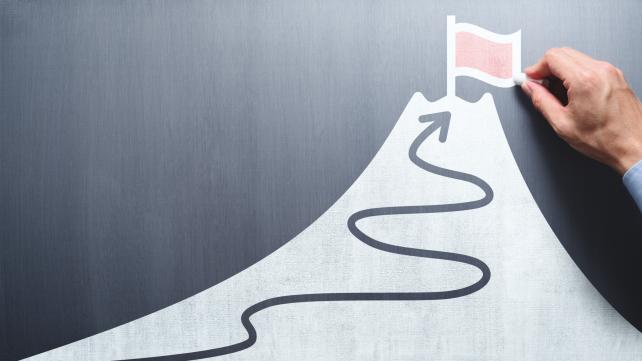
And this worldly life is not but diversion and amusement.
And indeed, the home of the Hereafter – that is the (eterna)] life, if only they knew.
(Quran 29:64)
There are various times that beg examination of where we have been and how we move forward. One is calamity. Another is change. Yet another is a milestone. There is surely an opportunity at hand as we say good riddance to 2020 – a year of unparalleled challenge. It is prudent for believers to refresh our skills, revive our inspiration, reinvigorate our beliefs, and renew our intentions to meet a new day and year with clear focus.
The most valuable commodity we have in this world is time. We must make the most of the opportunity we are afforded. We cannot be certain of how much time we have left, but we can be mindful about how we spend it.
Here are some tips on how to use your time wisely.
Start Everything with Bismillah.
Our life in this world is but a test. Activities as routine as taking out the trash, studying for a test, working to support the family, preparing a meal, and even having intimate relations with your spouse can have positive gain in this life AND in the Hereafter when they begin with the name of Allah. Starting with “Bismillah” will turn every task into an act of worship. If the activities you are engaged in are not for the sake of Allah, then make changes and adjust your intentions accordingly.
Set Short- and Long-Term Goals.
It is much easier to reach a destination if you know where you are going. It is important to establish a goal and to aim high. Visualization can help to build the internal motivation to actively move toward achieving it. With each goal be sure to identify time targets and ways to measure your success. Ask these questions: How would your life be different if you actively worked to please Allah in every endeavor? Would you need to make physical, emotional, and spiritual changes? Who could assist you along the way? How would you spend your time differently?
When making goals and working to accomplish them, be sure to set your sights on Ihsan, an Arabic term meaning perfection or excellence. Ihsan is a matter of taking one’s inner faith and making it evident in both deeds and actions, a sense of social responsibility borne from religious conviction. When committed to working in this manner, the believer is extraordinary in both process and end product.
Schedule your Day around Salat.
We plan and schedule. Some schedules we determine and some are set for us. We know with certainty that Allah is the Best of Planners. He has created a framework for our daily schedule – it revolves around our five daily prayers. You can take control of the day by making your prayers a priority. Keep the details in mind when you plan a meeting, take a short trip to the store, book a flight, or consider staying up late binge-watching TV. If we trust that Allah as al-Khaliq (The Creator) Who knows us best, then we can trust that there is benefit in following the daily schedule He has already established for us.
Take Care of your Physical Self.
Allah created the human body as a finely tuned machine. In order to expect optimal performance, we must consciously take care of it. This involves being attentive to what has been made Halal for us and mindful of the food we eat and when we eat it, avoiding sugar and other toxins, eliminating (or at least limiting) caffeine, and drinking plenty of water. If you are finding yourself sluggish or unable to concentrate, you may want to make an assessment of this area.
In addition to intake, it is important to get plenty of regular exercise. Scientific research has found that exercise enhances mood, reduces stress, boosts energy, improves overall health, and provides for a more restful sleep. Setting goals and gathering resources can be of help here. It is especially important to break bad habits and develop new routines. Add a social component by making it a family affair.
Value Sleep.
According to the United States Centers for Disease Control and Prevention, the average adult should get at least seven hours of sleep per night. If adequate sleep is not part of your routine, you are not alone – about one-third of American adults don’t reach that mark, and between 50 to 70 million have what can be clinically considered a sleep disorder. Sleeping too little can have serious long-term health consequences, including increased risk for obesity, diabetes, and cardiovascular disease.
Sleep is an important topic in Islamic literature, and the Quran and numerous sayings of Prophet Muhammad, God’s peace and blessings be upon him, discuss types of sleep, the importance of sleep, and good sleep practices. Get more information and make improvements if you are struggling in this area. Better sleep can make for better moods, increased productivity during the day, and better overall health and longevity
Rid your Mind of Clutter.
We can all visualize a cluttered home or workspace. But did you know that you can also have a cluttered mind? When your mind is overfilled, it can be restless, unfocused, and unproductive. Things that clutter your brain include worrying about the future, harping on the past, keeping mental to-do lists, and hanging on to complaints. Do some head-clearing activities and set new routines to regain valuable brain real estate. And make sure there is space to plant beneficial knowledge.
Take Breaks to Refresh.
Studies have found that taking breaks can reduce or prevent stress, help achieve and maintain optimal performance, and reduce the need for a long recovery at the end of the day. Set your own break schedule as a release or as a reward after an accomplishment. Working breaks into your schedule around prayer and meals is a great start.
Identify and Eliminate Distractions.
World renowned motivational speaker and author Tony Robbins has coached millions on time management strategies. He has created a list of what he calls the “time-sucks.” On the work front, these include use of the internet, emails and meetings; in everyday life these include traffic, entertainment, social media, lack of routines, not being able to say no, being controlling, and losing track of time. Consciously think about, identify, and eliminate what is distracting you from using your time wisely.
Prioritize.
Focus on what tasks are most important and factor these into your daily routine. You can choose to take an important task first thing, or you can start with something less important that can be completed quickly. Take special care to be disciplined at the start of your day. It may also be helpful to set aside time for individual tasks that you can do with singular focus, rather than trying to multitask. In fact, with multitasking you run the risk of not giving each task the attention it needs to be done well.
There Is Always Time for Good Deeds.
One last point deserves very special mention: Lending a helping hand, performing small acts of kindness, even smiling to raise the spirits of a stranger, are all examples of good deeds that don’t take much time, money or effort. Keep the opportunity for good deeds on your radar screen at all times. We should never be too busy to indulge or lose sight that there are blessings to be gained for both the one who receives and the one who takes time to give.
Our life in this world is short and we must utilize it to prepare for our final destination. While we are not in control of much, we can each use the blessings that Allah has provided to the best of our abilities, mindful of making the best use of each and every minute.
Allah swears by time in Surah al-Asr (chapter 103 of the Quran):
In the Name of Allah, the Most Gracious, the Most Merciful
theBy passage of time
Man is in deep loss,
Except for those who believe, do good deeds, urge one another to the truth,
and urge one another to steadfastness.




Add new comment